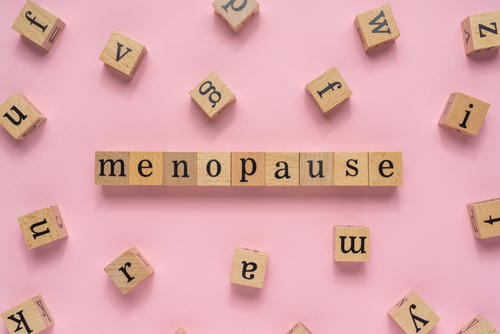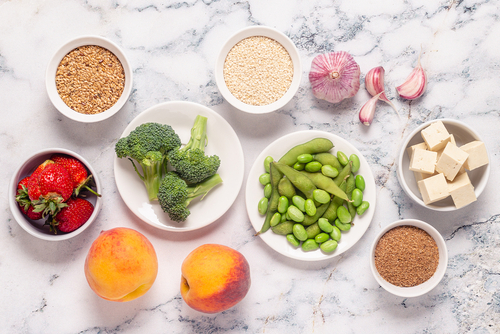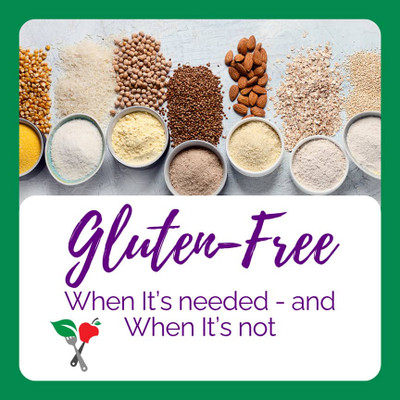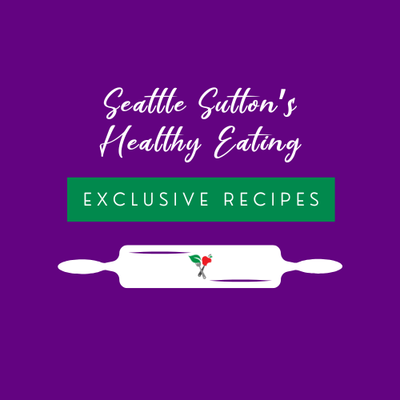Losing Weight During Menopause
Losing Weight During Menopause
WHAT IS MENOPAUSE?
Menopause is a time in a woman’s life when estrogen and progesterone hormones take a dip, and several symptoms start appearing. Finding natural solutions to these changes can make the transition a little easier. This is a time to take care of yourself by making healthy lifestyle choices.
On average, women reach menopause at age 51, but it can happen earlier or later. Symptoms of menopause vary between women. Common symptoms include hot flashes, night sweats, weight gain around the middle, sleep disturbances, and mood changes.
Menopause is caused by changes in hormones. The decrease in estrogen and progesterone levels are linked to weight gain, as well as increasing chances of breast cancer and increases in blood pressure during this time. Many women lose muscle mass and gain fat, particularly in the belly area. Losing muscle mass slows the rate at which your body uses calories which can make it more challenging to maintain a healthy weight. Lifestyle factors, such as being less active and eating more calories than needed, are important to look at to help control these factors.
Although hormone replacement therapy is available, it doesn’t come without risks. So before resorting to pharmaceuticals, try battling these changes with proper nutrition and lifestyle changes.
How to Lose Weight During Menopause
Healthy eating and maintaining a healthy weight are important but even more important as women enter menopause. Many aging women will tell you it becomes more difficult to lose weight or maintain a healthy weight after the age of 50. However, this doesn’t mean it’s impossible; it just takes a little more effort. Below are several considerations for women going through menopause. Eating healthy for a healthy weight CAN be achieved as we age and go through the "change."
1. Choose Healthy Fats: Yes, it is important to avoid eating a diet that is high in fat, especially saturated fat. High-fat foods are usually high in calories and low in nutrients, exactly the opposite of what a menopausal woman needs. But it's even more important to get the right fats in your diet -- fats that may protect against heart disease and cancer. Increase your intake by working oily fish (salmon, tuna, sardines), chia seeds, and avocados into your diet. Remember adding too much fat to your diet can also crowd healthy, nutrient-rich foods out of our diets such as fresh fruits and vegetables, low-fat dairy, and beans and legumes.
2. Eat a High Fiber Diet: Because it becomes more difficult to maintain a healthy weight after menopause, a high fiber diet is of the utmost importance because it has been proven to help with losing weight during menopause. High fiber diets can help one feel full and satisfied, plus high fiber foods are lower in calories, thus making weight management easier. Most adults should get at least 25 grams a day, but the more the better when it comes to fiber. Water helps move fiber through your GI tract, keeps you hydrated, and may help with controlling hot flashes. Make sure you are drinking plenty of water throughout the day while increasing your fiber.
3. Eat Your Fruits and Vegetables: Have at least 1½ cups of fruit and 2 cups of vegetables each day. Fruits and vegetables offer many health benefits. In addition to their high fiber content, fruits and vegetables also contain vitamins, minerals and are naturally low in fat. Plants have chemicals that help protect our bodies' health and wellbeing. Phytoestrogens are particular plant chemicals that are very similar in structure to estrogen and may act as a weak estrogen in our bodies. Simply put, phytoestrogens may trick your body into thinking it has more estrogen than it really does -- potentially diminishing some of the discomforts caused by lower estrogen levels during menopause.
If you suffer from hot flashes, try cutting back on caffeine and spicy foods, which can trigger hot flashes for some women. Watch your sodium intake and aim to cook more meals at home rather than go out to eat. Controlling your intake by being in charge of the ingredients allows you to leave out or lower the amount of sodium and spices you add to the food and gives you the freedom to add extra fruits and vegetables.
4. Eat Calcium-rich Foods: Calcium and vitamin D help keep bones strong. In one large study, postmenopausal women who took calcium and vitamin D supplements regularly had fewer hip fractures. Calcium and vitamin D may also help with weight management—possibly stimulating the breakdown of fat cells and suppressing the development of new ones. Eat and drink two to four servings of dairy products and calcium-rich foods a day to obtain the calcium your body needs.
5. Drink Green Tea: This drink is filled with antioxidants, and consuming more water and tea helps women to feel more energetic. And more energy equates to more exercise! Green tea has also been shown to increase metabolism thus assisting women with menopause weight loss.
6. Make Every Meal “Do-able”: Healthy eating needn’t be a big production. Keep it simple and you’ll stick with it. Stocking the pantry and fridge with wholesome choices will make it easier to prepare quick, tasty meals. And always try eating and cooking something new as soon as boredom strikes!
7. Be Adventurous: Eating new foods encourages variety, which is a key component of any healthy eating meal plan. A variety of foods from all food groups can help you get the nutrients your body needs as you age. A healthy eating plan emphasizes fruit, vegetables, whole grains, and low-fat or fat-free dairy; includes lean meat, poultry, fish, beans, eggs and nuts; and is low in saturated fats, trans fats, cholesterol, salt (sodium), and added sugars. After all, variety is the spice of life!
8. Rethink “Exercise”: Often “exercise” has a negative connotation. If you rephrase exercise into ‘playing’ it becomes fun, enjoyable, and something you look forward to. You don’t have to work up a good sweat in the gym for this to be beneficial, just adding a little movement to your life can prevent weight gain, or even help with weight loss. Be creative and find ways to get moving every single day.
Adults should aim for at least 30 minutes of moderate-intensity exercise most days of the week. Simple changes can add up. Park further away in the parking lot at work. Take the stairs rather than the elevator. Turn up the music and dance. Aim to include strength-building exercises at least twice a week. Strength-building exercises help to replace lost muscle mass and can help slow the mineral loss in your bones that can lead to osteoporosis.
If you are looking for a healthy, clean meal plan that not only helps you with menopause weight loss but also helps make you feel and look better, try Seattle Sutton's Healthy Eating! All of our meal plans are packed with nutrients and fresh ingredients to help you live a healthier lifestyle!
Check us out today!










 Weight Loss
Weight Loss Health & Wellness
Health & Wellness Diabetes
Diabetes Heart Health
Heart Health Motherhood & Family
Motherhood & Family Dietary Restriction
Dietary Restriction Other Health Conditions
Other Health Conditions About SSHE
About SSHE


